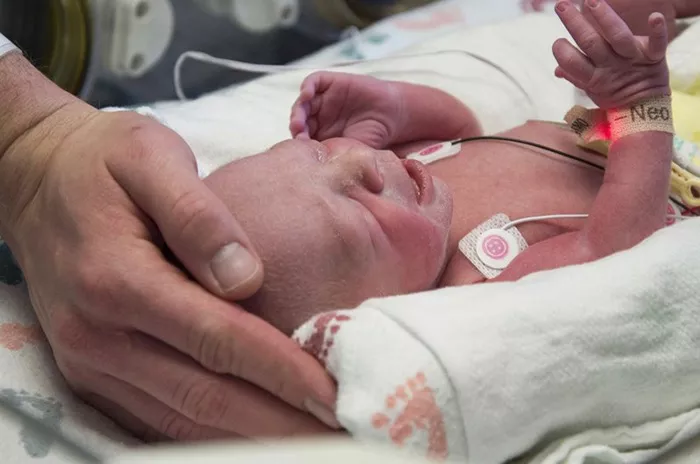In a groundbreaking moment for reproductive medicine, the UK has celebrated its first successful womb transplant, with a baby girl being born to a mother who received a donated womb. This milestone, which has captured the attention of both the medical community and the public, marks a significant achievement in the field of fertility treatment.
A Personal Journey of Hope
Grace Davidson, 36, who was born without a functional uterus due to a rare condition, gave birth to her daughter, Amy, in February 2025. The birth followed a pioneering womb transplant surgery performed in 2023. Grace was diagnosed with Mayer-Rokitansky-Küster-Hauser (MRKH) syndrome, a condition that prevents the development of the uterus but leaves the ovaries intact.
For Grace and her husband, Angus, having a biological child of their own was a deeply personal goal. “I’ve always had a mothering instinct, but for years, I had to suppress it because the pain was too much to bear,” Grace said. After considering options like surrogacy and adoption, the couple remained determined to have a child they could call their own.
The Donor’s Role in the Miracle
The decision to proceed with a womb transplant was not an easy one. Initially, Grace’s mother was considered as a potential donor, but her uterus was found to be unsuitable. In 2019, Grace’s sister, Amy, who had already given birth to two children, agreed to undergo an evaluation for womb donation. After much counseling, Amy made the generous decision to donate her uterus to her sister.
Grace’s IVF process was quick, with her becoming pregnant on the first attempt following the transplant. “It was overwhelming because we had never truly allowed ourselves to imagine this moment,” Grace shared.
A Complex Surgical Procedure
The transplant took place in February 2023 at Churchill Hospital in Oxford, where a team of over 30 medical professionals worked for 17 hours to successfully transplant the uterus. Grace’s body responded positively, with her first period occurring within two weeks of the transplant. Isabel Quiroga, the lead surgeon, called the procedure “life-enhancing and life-creating,” describing it as “the best outcome we could hope for.”
The Birth of Amy and the Family’s Joy
On February 27, 2025, baby Amy was born by caesarean section at Queen Charlotte’s Hospital in London. Weighing just over two kilograms, she was named after her aunt, who made her birth possible. Grace and Angus were overwhelmed with joy upon meeting their daughter, describing the moment as “incredible” and “surreal.”
Now, the couple is hopeful for a second child, though they will wait for medical clearance before attempting another pregnancy.
The Risks and the Future
Despite the success, the procedure carries certain risks. To prevent her body from rejecting the transplanted womb, Grace has been on immunosuppressants, which can increase the risk of some cancers over time. However, the medical team has assured her that the donated womb will be removed after her second child is born, which will allow Grace to stop taking these medications. Surgeons are optimistic that the health risks associated with long-term use of immunosuppressants will return to normal once the womb is removed.
This groundbreaking procedure has opened new possibilities for women with MRKH syndrome and similar conditions, providing hope for those hoping to experience pregnancy and childbirth.
Related Topics:


